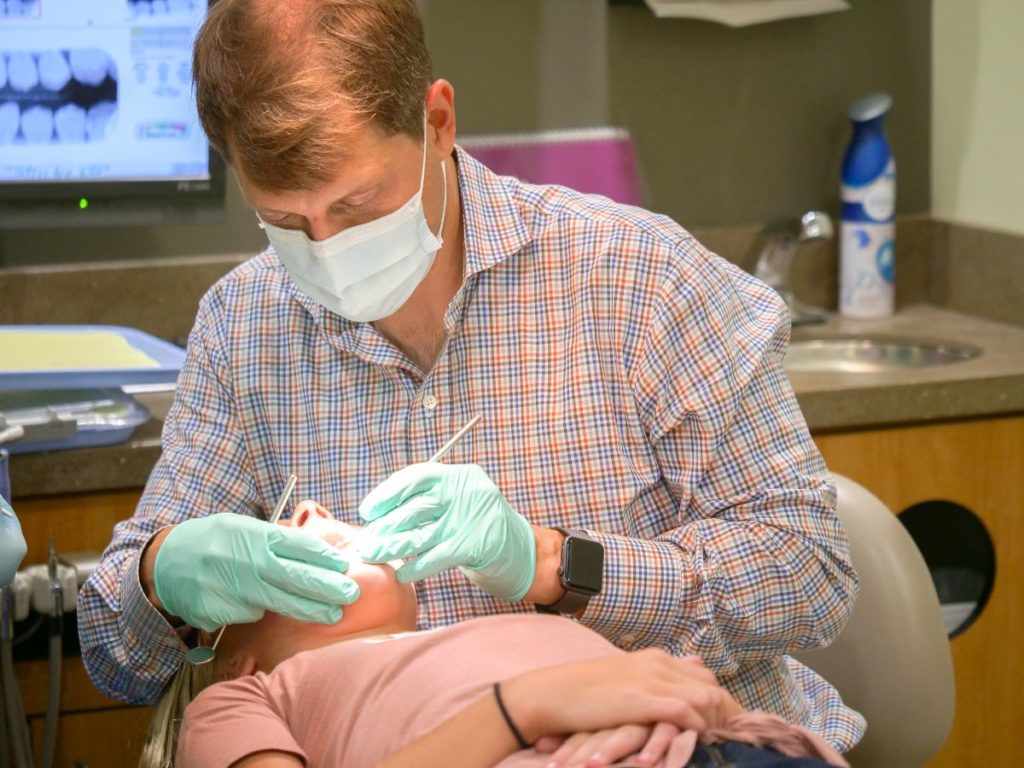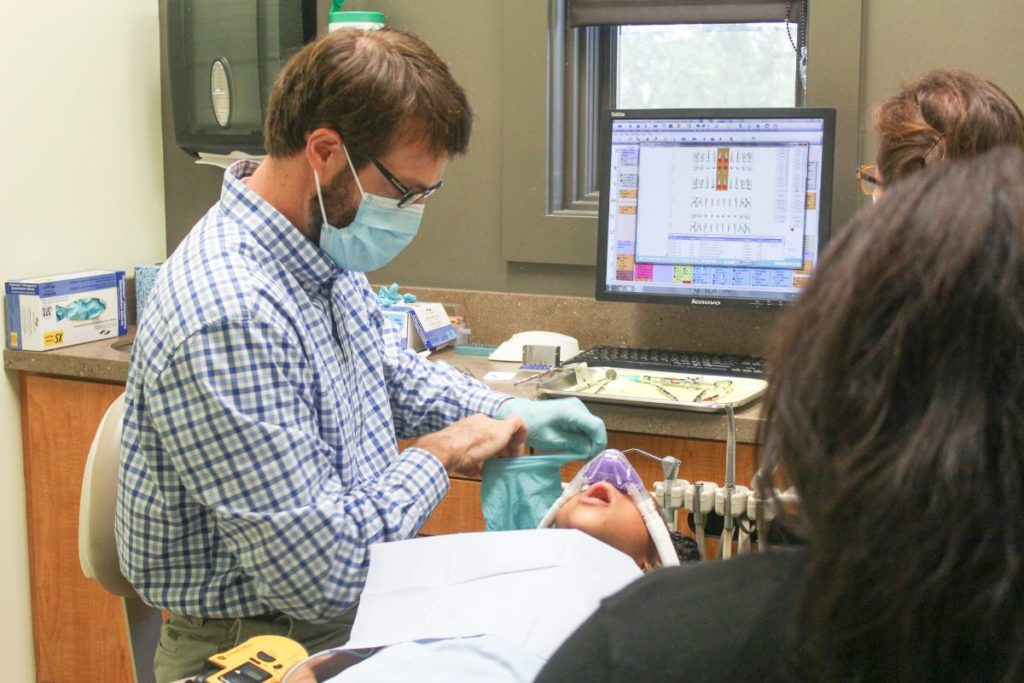Take a walk down any oral care aisle, and you’re likely to find any number of products designed specifically for sensitive teeth. That’s because this condition is incredibly common, with as many as 1 in 8 people suffering from tooth sensitivity. While there are various types and levels of sensitivity, it tends to be most noticeable when the teeth are exposed to something hotter or colder than normal, something sweeter or more sour than normal, or if there are deep cavities or exposed root surfaces present.
Although this is mainly a problem for adults, it can happen in children, too. However common it is, it can be frustrating to see your child struggle with something so uncomfortable. If you’re a parent who’s recently found yourself at a loss helping your child cope with sensitive teeth, keep reading below for more information on the underlying causes, triggers, and helpful suggestions that will offer some relief!
What causes sensitivity in the teeth?
Tooth sensitivity is among the common causes of a toothache. The phrase “tooth sensitivity” refers to tooth discomfort or feelings of toothache in one or more teeth. The pain of tooth sensitivity is usually sharp, sudden and shooting. Tooth sensitivity occurs when the layer of a tooth underneath the enamel (called the dentin) or the layer covering the root (called cementum) is exposed along the gum line due to receding gums. The exposed areas respond to hot and cold, and sometimes too sweet and spicy foods, and trigger pain.
Some of the factors that can contribute to tooth sensitivity in your child include:
- Overzealous brushing: It’s true that you can have too much of a good thing! A child who is brushing too vigorously can wear down gum tissue over time, causing the gum line to recede, which in turn reveals the more porous root surfaces and areas of the teeth that are not normally exposed. This kind of over-brushing is actually the most common cause of tooth sensitivity, and it can sometimes cause serious pain.
- Tooth grinding: A child who grinds their teeth can cause the enamel to wear away more quickly, exposing the dentin.
- Dental cleanings or treatments.
- Gum disease: Although gum disease is rare in children, any inflamed gum tissue can pull away from the tooth, leaving vulnerable areas exposed.
- Thinning tooth enamel can also cause tooth sensitivity. Enamel is what helps keep the teeth strong, and a failure to remove plaque and bacteria from building up can eventually break it down. Whether due to improper brushing and flossing techniques or overall poor oral hygiene, thinning or lost enamel can weaken your child’s teeth, leaving them exposed and more susceptible to sensitivity.
If your child has been exhibiting any signs or symptoms of tooth sensitivity, we encourage you to contact our office and schedule an appointment for a proper assessment of the situation.
Caring for your child’s sensitive teeth
If your child has sensitive teeth, don’t neglect their daily dental hygiene routine! No matter the cause of it, taking good care of their teeth and mouth will be the first line of defense against oral issues of any kind. Failing to keep the teeth clean can lead to worn enamel or sensitivity around the gum line, and being vigilant about proper brushing and flossing also helps prevent the buildup of tartar and bacteria. In turn, this reduces the risk of exposed nerves, a common source of sensitivity.
Using a soft toothbrush and soft floss should help your child when it comes to establishing or maintaining a good oral hygiene routine. You can also try a toothpaste that’s been designed specifically for sensitive teeth, but this may not be advisable for younger children, so always check with one of our dentists before deciding to use this kind of product. There are a number of other steps you can take with your child to help prevent and relieve tooth sensitivity, including:
- using a soft-bristled toothbrush to help prevent gum loss.
- brushing with a sensitivity toothpaste where applicable, which will continue removing plaque to clean teeth while providing relief from sensitivity.
- ensuring your child is thoroughly brushing and flossing twice a day to prevent gum loss.
- helping them clean all parts of their mouth, including between teeth and along the gum line.
- not offering acidic foods and drinks.
How Children’s Dental Center can help with sensitive teeth
It’s not uncommon for a child to experience some slight discomfort and sensitivity from time to time, but this should be temporary. Making just a few minor adjustments to their oral hygiene routine is often all that is required to help reduce sensitive teeth and keep their smiles strong and healthy. If sensitivity has been an ongoing problem for your child, or you’ve been having trouble getting them to brush and floss effectively, a pediatric dentist can be a great ally!
All of our pediatric dentists have had an extra two or three years of specialized training after dental school, and they are experienced in treating children from infancy through the teenage years. Our entire team knows that young children, tweens, and teens all have different needs and require a different approach when dealing with their dental growth and development. Our doctors are able to offer the most innovative and up-to-date treatments for a wide variety of pediatric dental problems, including sensitive teeth.
If you’re in Memphis or the Mid-South area and want to learn more about how we can help treat your child’s sensitive teeth, get in touch today! We’re here to provide you and your child with answers, relief, and a smile that looks and feels great.


